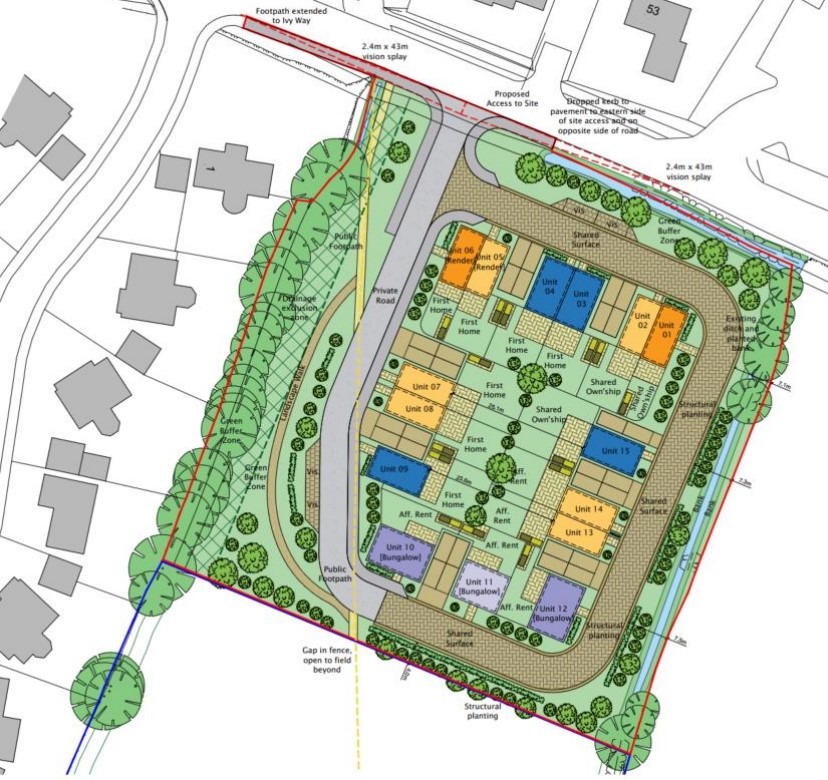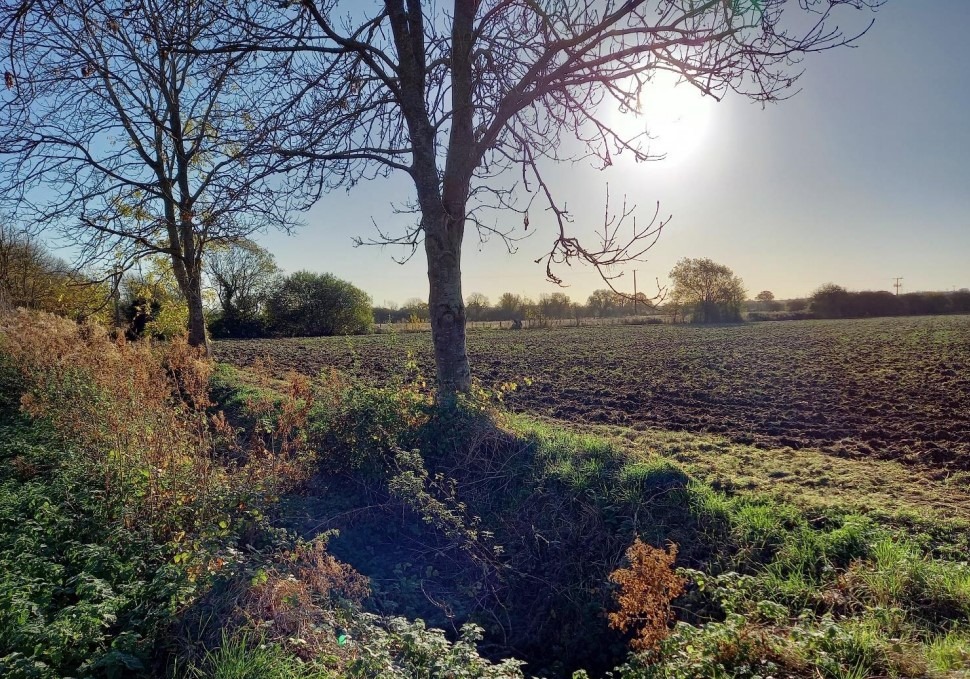Huntingdonshire District Council must stump up thousands of pounds after its planning department was found guilty of “unreasonable behaviour resulting in unnecessary or wasted expense” by its planning department.
Blenheim Land and Homes Ltd has been awarded all their costs after successfully appealing a decision by the council to refuse permission for 15 homes east of Ivy Way, Spaldwick.
The Planning Inspectorate upheld the appeal even though its inspector R Gee noted that “it is understood that planning permission has been granted for a near identical form of development.
“Be that as it may, I have determined the appeal on its own merits, based on the evidence before me”.
Mr Gee said in normal circumstances both parties would pay their own expenses, but costs may be awarded “against a party who has behaved unreasonably and thereby caused the party applying for costs to incur unnecessary or wasted expense in the appeal process”.
He decided that in instance Huntingdonshire District Council had done just that.
Mr Gee said he was told by Blenheim Land that the council planning office “concealed relevant information at the planning application stage, particularly the response from the Public Rights of Way Officer (PRoW) and HDC waste officer.
This was not made publicly available, claimed Blenheim, until the day before determination and the response from the urban design officer, which was not made publicly available until a week before determination.
The inspector also heard allegations that the planning authority at the council had falsely suggested that the ProW and urban design officers had objected to the application, which was not the case and did not give time to the Blenheim to respond and did not reasonably give them time to be aware of these comments.
Mr Gee said: “On substantive grounds the appellant submits that the LPA (local planning authority) has not provided any evidence to substantiate the reasons for refusal, making vague, generalised or inaccurate assertions about a proposal’s impact which are unsupported by any objective analysis, including highways impacts and flooding.”
Other claims considered by Mr Gee included the reasons for refusal could have been dealt with by condition.
And Blenheim also claimed that officers, by failing to engage with them throughout the course of the application to resolve the issues arising with the application, had caused the appeal to come forward.
Mr Gee said the reasons for the refusal “set out in the decision notice are complete, precise, specific, and relevant to the application.
“It also clearly states the policies of the Huntingdonshire Local Plan to 2036 that the proposal would be in conflict with.
“However, in my view, the appeal statement does not adequately substantiate these reasons.”
He said: “In respect to the first reason for refusal it is clear from the submitted plans that the layout provides for a circular route and that it would not be necessary for refuse vehicles to undertake a reverse manoeuvre within the site to service the properties.

“Nor has the vague assertion about harm to highway safety been substantiated.
“Accordingly, I conclude that the LPA behaved unreasonably in assessing the application as being in conflict with the highway safety policies of the development plan and national planning guidance.
“This has led to unnecessary and wasted expense having to address this matter in their appeal.”
With regards to flooding and drainage whilst further clarification was sought for the drainage strategy, overall, such matters could have been dealt via clarification prior to determination or through the imposition of a suitably worded planning condition.
In respect of the consideration of the public right of way he said planning officers had not demonstrated with any clear evidence how the existing public right of way alignment through the site would be unacceptably harmful to pedestrian and highway safety.
“The re-alignment of a PROW would be secured under a separate regime,” he said.
“As such, I conclude that the LPA behaved unreasonably in assessing the application as being harmful in this regard. This has led to unnecessary and wasted expense having to address this matter in their appeal.”
Mr Gee said the local planning authority (LPA) had issued “putative reasons for refusal on grounds that were capable of being dealt with by planning condition.
“The lack of communication in this respect has had a significant bearing on the outcome of the application, such that an appeal could have been avoided.
“In the planning judgement, it appears to me that having regard to the provisions of the development plan, national planning policy and other relevant considerations, the proposed development should reasonably have been permitted.”
His conclusions were scathing.
“The refusal of planning permission therefore constitutes unreasonable behaviour,” he said, and Blenheim had been faced with the unnecessary expense of lodging the appeal.
“I therefore find that unreasonable behaviour resulting in unnecessary or wasted expense has been demonstrated and that a full award of costs is justified.”

















